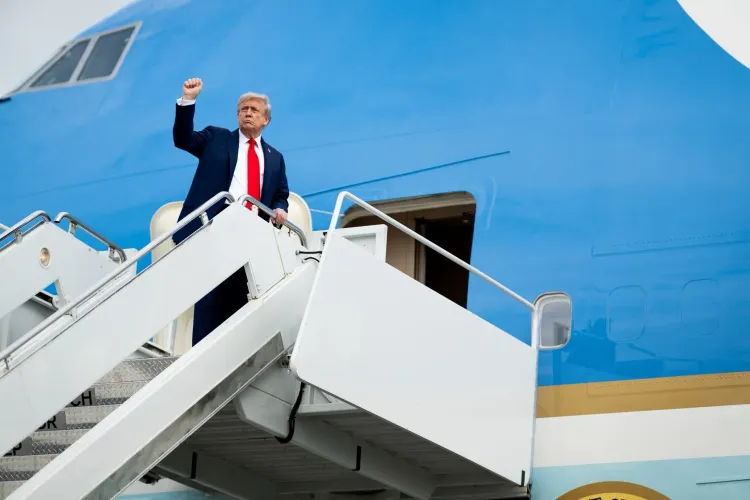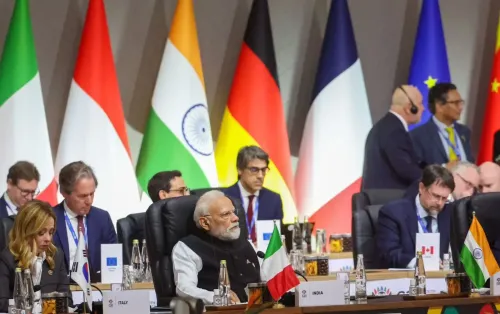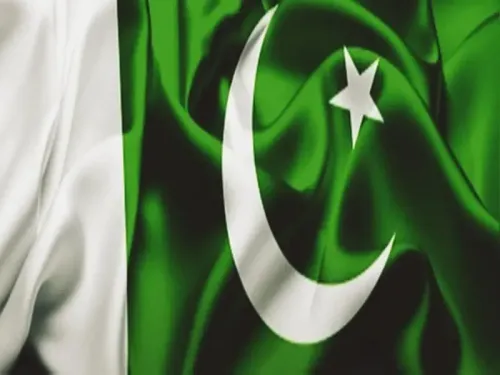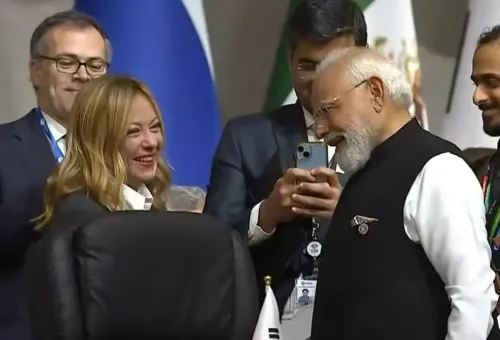Is Trump Shifting Towards a Peace Agreement to Resolve the Ukraine War?

Synopsis
Key Takeaways
- Trump drops ceasefire demand for a peace agreement.
- European leaders remain skeptical about the new approach.
- Zelensky emphasizes immediate need for a ceasefire.
- Strengthened sanctions against Russia may be necessary.
- Ironclad security guarantees for Ukraine are essential.
New York, Aug 16 (NationPress) US President Donald Trump has announced that following his summit with Russia’s President Vladimir Putin, he will no longer pursue a ceasefire demand. Instead, he advocates moving forward directly to a peace agreement aimed at concluding the Ukraine War.
After a late-night discussion with Ukraine’s President Volodymyr Zelensky and other European leaders on Friday, he stated in a Truth Social post that it was "determined" that a peace agreement is the optimal path.
He emphasized, "It was determined by all that the best way to end the horrific war between Russia and Ukraine is to go directly to a Peace Agreement, which would end the war, and not a mere Ceasefire Agreement, which often times do not hold up,” in a post shared early Saturday morning, Washington time.
However, European leaders and Zelensky remain doubtful about any arrangement that circumvents an immediate ceasefire, fearing that Russia might seize more Ukrainian territory to fortify its negotiating stance.
Trump mentioned that he plans to engage with Putin regarding ongoing assaults on Ukraine while diplomatic discussions are ongoing.
He claimed in his Truth Social post that Friday's summit in Alaska was "very successful," and his conversations with Zelensky and other European leaders were "very well" received.
He noted that Zelensky is scheduled to visit the White House on Monday afternoon, and if all progresses favorably, they will arrange a meeting with President Putin.
Trump did not disclose the "most significant" point of contention he had with Putin that hindered a deal.
At a news conference following the Alaska summit, he acknowledged there were "a couple of big ones that we haven't quite gotten there, but we've made some headway.”
“One is probably the most significant, but we have a very good chance of getting there,” he stated.
Previously, Trump indicated he would insist on a ceasefire and would terminate discussions if an agreement on it was not reached.
While en route to Alaska, he told reporters on Air Force One, "I want to see a ceasefire rapidly.”
“I don't know if it's going to be today, but I'm not going to be happy if it's not today,” he added.
Zelensky expressed on X that European leaders coordinated their positions and sought a ceasefire "as soon as possible.”
“The positions are clear. We need to achieve real peace that will be lasting, not just another pause between Russian invasions,” he added, emphasizing, “We must stop the killings as soon as possible, ceasefire both on the battlefield and in the skies, and against our port infrastructure.”
He urged Trump to intensify sanctions against Russia should negotiations with Putin falter.
“In the conversation with President Trump, I emphasized that sanctions should be strengthened if there is no trilateral meeting or if Russia evades an honest end to the war,” he stated.
The European leaders, identifying themselves as "The Coalition of the Willing," in a collective statement after discussions with Trump and among themselves, did not address the ceasefire issue.
They expressed that they “welcomed President Trump’s efforts to stop the killing in Ukraine, end Russia’s war of aggression, and achieve just and lasting peace.”
They asserted that Ukraine must receive ironclad security guarantees to effectively safeguard its sovereignty and territorial integrity, according to a statement released by the heads of state or government of Britain, France, Germany, Poland, Italy, the Netherlands, and Finland, along with the president of the European Council.
“As President Trump noted, ‘there’s no deal until there’s a deal.’ As envisioned by President Trump, the next step must now be further talks including President Zelenskyy, whom he will meet soon,” they added.
France’s President Emmanuel Macron mentioned on X that following Trump’s briefing, European leaders resolved to “maintain pressure on Russia as long as its war of aggression continues and until a solid and lasting peace, respectful of Ukraine’s rights, has been established.”
He concluded by stating they will continue to “work closely” with Trump and Zelensky “to safeguard our interests in a spirit of unity and responsibility.”









